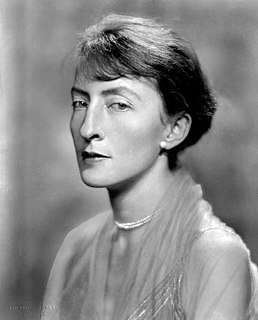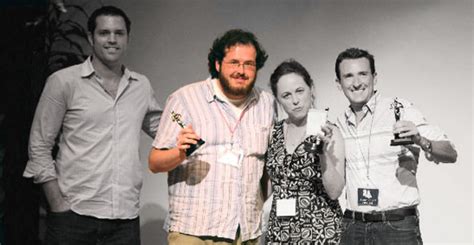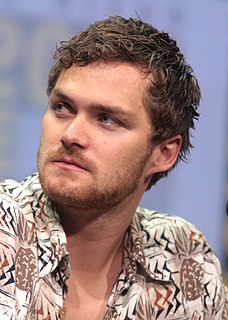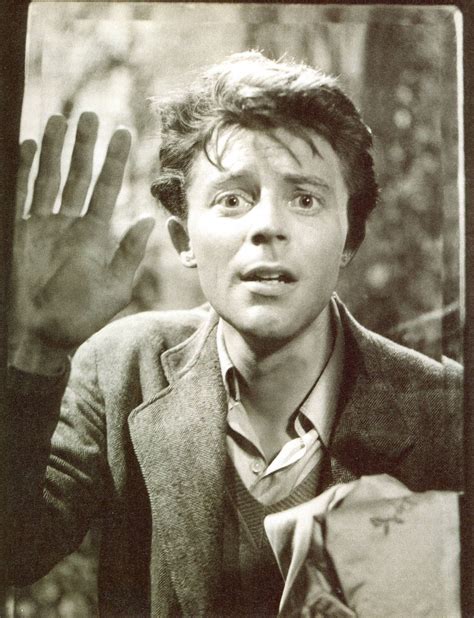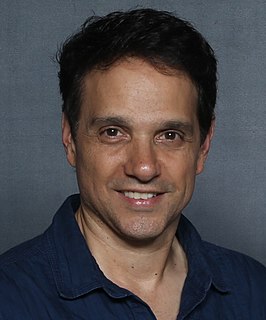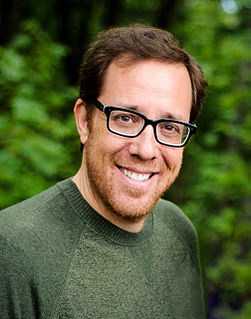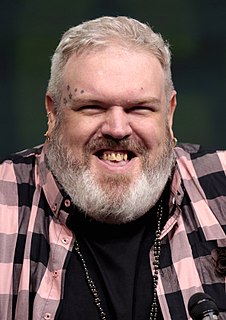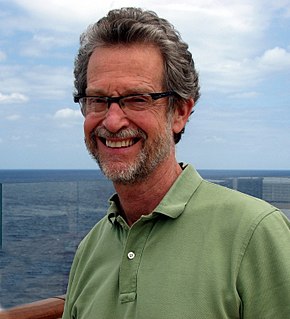A Quote by Susanna Kearsley
The best way to show an emotion is not through a character's words, but their smallest expressions - to take what an actor would visually do and try putting that down on the page for the reader to 'see.'
Related Quotes
When I'm writing, I try to have the mask of my character on as I'm walking through the world. When I'm not at my desk, the rest of the time, I try to stay in that character and see the world the way that character would It's almost like method acting in a way — keeping the character close the way the actor keeps a script close and always tries to be in character.
Guys like Spielberg and Zemeckis and really anybody who is a storyteller-filmmaker today has studied Hitchcock and the way he visually tells a story. He was the master of suspense, certainly, but visually you would get a lot of information from what he would do with the camera and what he would allow you to see as the story was unfolding.
There's an old adage in writing: 'Don't tell, but show.' Writing is not psychology. We do not talk 'about' feelings. Instead the writer feels and through her words awakens those feelings in the reader. The writer takes the reader's hand and guides him through the valley of sorrow and joy without ever having to mention those words.
The other day I found her passport in her drawer when I was putting away my dad's laundered handkerchiefs. I wish I hadn't. For the purpose of my story, she should have it with her. I sat on my dad's bed and flipped through page after empty page. No stamps. No exotic locales. No travel-worn smudges or creases. Just the ID information and my mother's black-and-white photo which if it were used in a psychology textbook on the meaning of facial expressions would be labelled: Obscenely, heartbreakingly hopeful.
An actor uses his body as a tool and an instrument. In the same way a musician plays an instrument, the actor uses his body to convey feeling and emotion. An animator uses a pencil or a computer to create the same thing, the same exact way... An actor is taking words that are not his own, and he has to bring some kind of authentic life to those words. It's the same goal, to create this authentic life. Even if it's a drawing, or if it's a cartoon, you're still trying to create authenticity because, if the character emotes authentically, it has a power to connect with the audience.
People either think Hodor is a very easy character to play or a very difficult one; there's no in between. But it's a lot of fun having to completely switch personalities inside four seconds, with no words. That's a joy for an actor to get to show all that complex emotion in such a short space of time.
When I write, I never think of segments as chapters; I think of them as scenes. I always visualize them in my mind. Then I try to get the scene down on paper as closely as I can. That's the one thing that readers don't see - what you have in your mind. The reader can only see what you get on the page.


